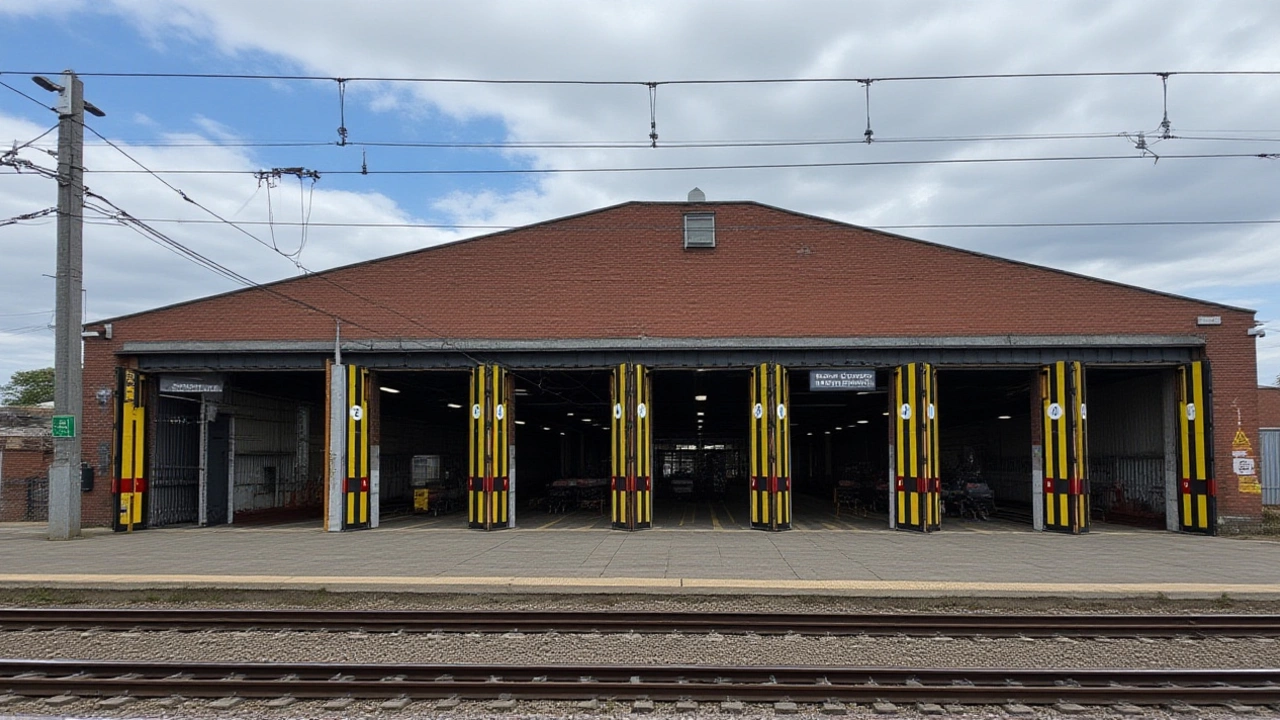Railway 200 – Your Local Community Race
When you hear Railway 200, a 200‑meter sprint that follows the historic railway corridor in Tayside‑Fife, turning an old track into a lively community event. Also known as the Railway 200 Challenge, it brings together runners, families, and local charities in a single day of sport and fun. The race encompasses a short, fast‑paced run that showcases the town’s scenic heritage while encouraging participants to push their limits. It requires a simple registration, a quick health check, and a willingness to cheer on neighbours. By linking sport to a charity fundraiser, the event redirects entry fees and sponsorship money to community projects and local health services, Railway 200 becomes more than a race – it’s a catalyst for good.
Why the Railway 200 Matters for Health and Community
One of the biggest draws of Railway 200 is its focus on health and fitness, promoting regular exercise, mental well‑being and a sense of achievement among participants of all ages. Studies from local sports clinics show that short, high‑intensity bursts like a 200‑meter sprint improve cardiovascular health and boost confidence. The race also serves as a community race, an inclusive gathering where schools, clubs and businesses field teams, fostering local pride. This dual purpose—fitness plus community spirit—means that the event influences both individual health outcomes and broader social cohesion.
Local clubs often use Railway 200 as a benchmark for training. For example, the Dundee Athletics Society times its members against the race’s winning mark to set realistic goals. Meanwhile, the Tayside‑Fife Sports Hub highlights the event in its weekly newsletter, linking it to other sports news like football fixtures, basketball tournaments and upcoming charity matches. By weaving Railway 200 into the fabric of the region’s sports calendar, the hub creates a seamless flow of information that keeps readers engaged with a variety of topics—from a Napoli‑Pisa thriller to a debate about NFL vs. college football.
Beyond the track, the race’s charitable angle fuels projects that directly benefit the community. Recent years have seen funds go to mental‑health workshops, youth sports equipment, and upgrades to local park facilities. This shows a clear semantic link: charity fundraiser influences community development. When participants see their entry fee turning into a new basketball court or a support group for menopausal women, the motivation to run becomes deeper. The event also attracts local media, giving exposure to other sports stories on the hub, such as the debate over guaranteed contracts in professional leagues or personal anecdotes about meeting legends like Muhammad Ali.
For newcomers, Railway 200 offers a low‑barrier entry point into the world of organized sport. No need for a season‑long commitment—just a pair of shoes and a willingness to join a crowd cheering on the finish line. The race’s timing in early spring aligns with the start of many club seasons, making it a perfect warm‑up for upcoming football matches or basketball games. It also fits nicely with school calendars, allowing teachers to incorporate a real‑world example of health education into lessons about exercise physiology.
In short, Railway 200 sits at the crossroads of sport, charity and community life in Tayside‑Fife. It illustrates how a short sprint can spark long‑term health benefits, fund local projects, and tie together a diverse set of sports stories that the hub covers daily. Below you’ll find a curated list of posts that dive deeper into related topics—ranging from personal health narratives to big‑game analyses—so you can explore every angle of what makes local sport culture tick.

- Oct 1, 2025
- Finnegan Westbrook
- 0 Comments
Northern Trains marks Heaton Depot’s 150th anniversary with open day
Northern Trains celebrated Heaton TrainCare Centre's 150‑year milestone with a charity open day in Newcastle, showcasing historic locomotives and raising funds for rail apprenticeships.